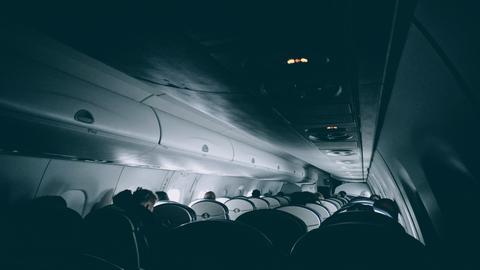
In a race to the bottom, major US airlines are finally beginning to offer their passengers what they really want: really cheap fares. The name of the game is Basic Economy. If you thought flying in the economy cabin couldn’t get less luxurious, it just did.
There’s nothing inherently wrong with the concept. Basic economy lets large airlines offer their expensive-to-run network of routes. It also helps them stay competitive against ultra-low cost carriers like Spirit and Frontier without having to sacrifice profitability.
Of course, those cheap fares don’t just materialize from thin air. We as passengers have to give up services we might have taken for granted.
Basic economy in a nutshell
Basic economy is essentially a “fourth fare” that’s a skinnied down version of economy fares. Yes, you read that right. Just when you thought flying economy in the US couldn’t get more bare bones, airlines find new ways to innovate that impress us all.
As of now, airlines haven’t gotten so creative as to shrink down seat pitch or width even more. Nor have they dispensed with all amenities. You’ll still, for example, get a snack and non-alcoholic beverage free of charge with your flight. But you do give up some amenities and lock yourself into a more restrictive fare. More on this in the next section.
A basic economy ticket is cheaper than what you’d pay for an economy one, but this discount is incremental. It’s not anywhere close to some discounts you see on air:spirit or air:frontier, whose fares are sometimes a half or even a third of what their competitors charge (don’t worry, they make this lost revenue back).
Instead, you could expect to save about $30-70 on a standard domestic, somewhere in the ballpark of 15-20% off.
Going places (but stuck in one seat)
Based on the airline policies we’ve read, it’s abundantly clear that selecting basic economy condemns you to the worst seats in the house. Airlines assign you your seat (usually in the back or at least a middle seat) either at purchase or at the gate. If you want to pick your own seat, expect to pay enough to wipe out a good chunk of what you saved booking basic economy in the first place.
Some airline won’t even let you change your seat. air:alaska has already said that seat assignments can’t be changed on its basic economy tickets when those roll out in 2019. air:delta has also made it clear that no amount of money or Medallion status will get you a seat change or upgrade. If you get buyer’s regret, you’ll just have to buy a new ticket.
And speaking of buyer’s regret, no changes or refunds permitted on basic economy tickets. If you need to make changes or cancel your flight, make sure you do so within the 24-hour federally mandated period for changes and cancellations.
LILO: Last in, last out
With basic economy, you’ll always be the last to board. The worst thing about this is that there might not be enough overhead bin space for you. Even then, you’re assuming you’ll have a bag to bring (see next section).
Basic economy means you’ll probably be seated somewhere near the back of the plane, so you’ll presumably be the last to deplane. There’s nothing particularly wrong with this. It’s just that you’ll have to wait a bit longer to exit and maybe jog a bit to catch a tight connection.
Bag allowances on a basic economy fare
For the most part, basic economy fares have baggage policies that match those of main cabin / regular economy policies. This is the case for air:alaska,
There are some notable exceptions to this.
On air:delta, you can expect a free first checked bag on all international flights. That is, unless you’re flying to Europe or North Africa. For flights going to or originating from those regions, expect to pay $60 per way for a first bag and $100 per way for a second bag if you’re a basic economy passenger. For more details, refer to Delta’s baggage policies.
Both air:american and air:united have similar policies when it comes to flights to and from Europe. Where economy passengers may enjoy a first checked bag free, basic economy passengers will pay a first checked bag fee. As of this writing, this fee is $60 in each direction.
Finally, note that air:united is the only airline that doesn’t allow carry-on luggage for its basic economy passengers. While you’re still permitted a personal item (not to exceed 9 x 10 x 17 inches), larger bags must be checked. If you’re caught with a larger bag at boarding, expect to pay more than you would checking a bag at the check-in counter as United will assess a gate handling fee of $25.
Links to baggage policies
We know. These baggage policies aren’t exactly straightforward and you probably still have unanswered questions. If that’s the case, we’ve conveniently linked you to the bag policies page of each airline offering basic economy (with the exception of Hawaiian, which still hasn’t published its new policies).
Delta: General Baggage Policy
American: Basic Economy Policy / Checked Baggage Policy
United: Basic Economy Policy
Alaska: Saver Fare Policy
Hawaiian** (not yet available)
Comments